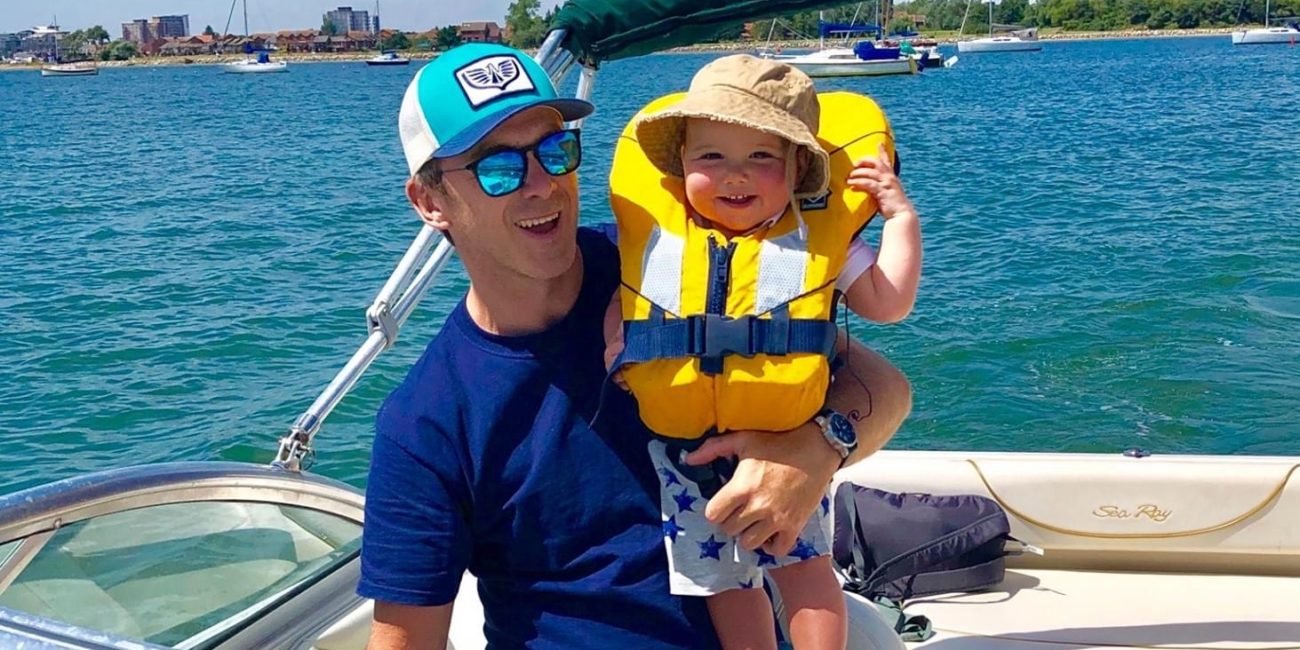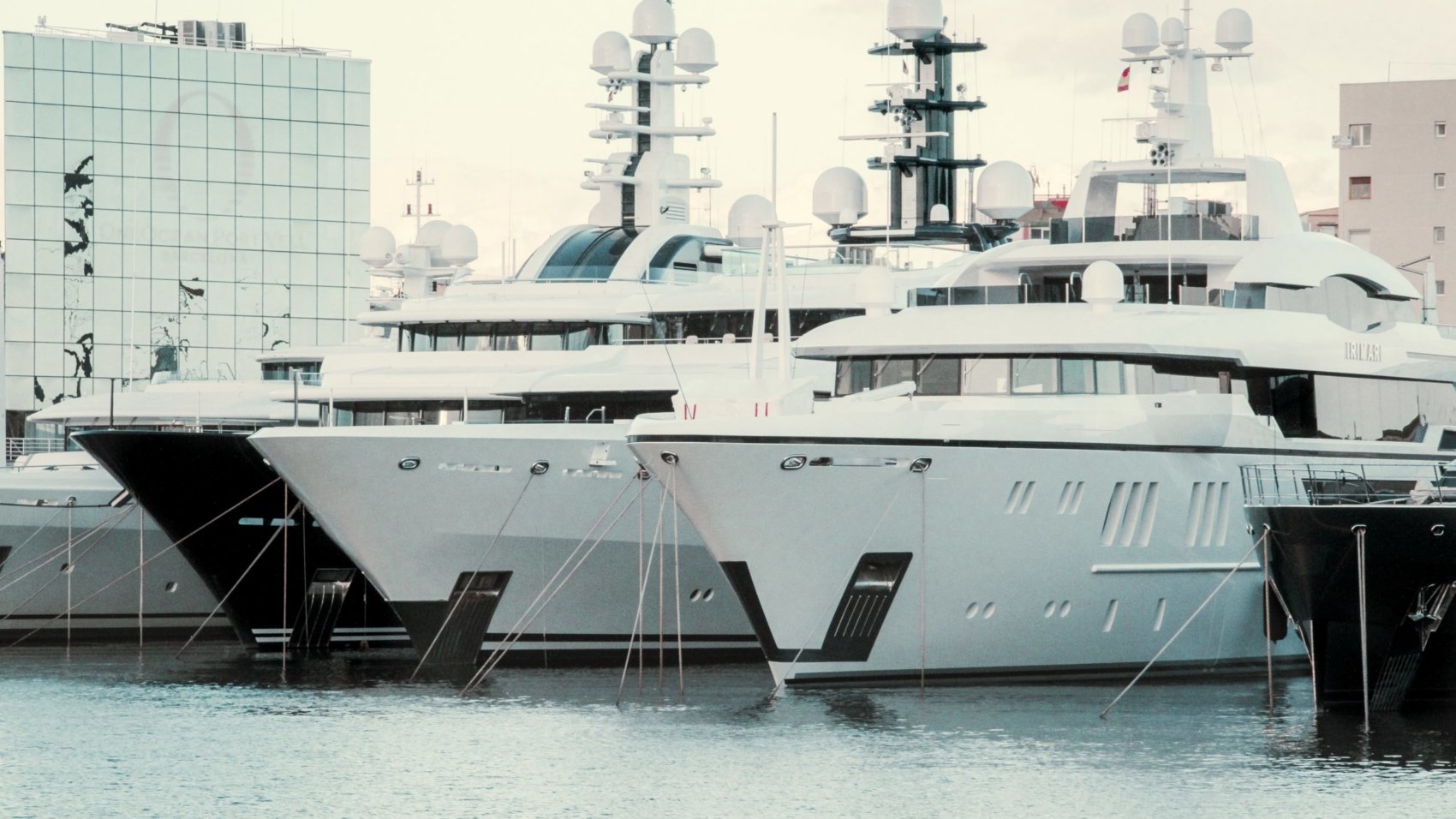At CrewPass, we aim to give our audience the advantage they need within the marine industry. This is why CrewPass are interviewing multiple people from different vessel positions to provide individuals who are new to the industry advice and tips straight from the best before choosing which route they want to go down.
A couple of weeks ago, we interviewed ex-Chief Stewardess Brooke Laughton about her path to becoming a Chief Stewardess and how she ended up on Below Deck Mediterranean. This week we interviewed a Captain named Corey Adcook. Captain Corey has been working in the yachting industry for over 16 years and has brilliant advice for those desiring to become a Captain themselves.
Can you describe what you do day to day as a captain?
My day always starts with a cup of tea! Then I check in with the bridge. If we are at sea, I will catch up with the navigational officer in charge and ensure everything is as it should be. We don’t like things not being as expected when at sea! Then I’ll have a meeting with all heads of department for updates on guest movements & operations. Followed by a check in with the guests at breakfast and any updates for or from them.
“The day could require me to handle the manoeuvring of the yacht, do some navigational planning, deal with the running of the ship’s business, or, most importantly, anything the guests require.”
Being the Captain of a luxury yacht brings great responsibility, not only from the safety aspect but also the welfare of the crew onboard. It is similar to being the Managing director of a business, except this one floats and has many hazards to avoid.
How long have you worked in the industry?
Over 16 years now. I started out on very small boats in comparison to what I am now involved with. It has been a challenging career, as it takes a great toll on your personal life. I’ve missed endless weddings, funerals and life events. Even now, I only see my wife and children half of the year. There are great sacrifices.
What training did you need to get to Captain level?
Captains’ certifications vary depending on the size (Gross Tonnage) of the vessel. I have the MCA Master 3000 certificate of competency, enabling me to be in command of a yacht up to 3000 gross tons, which would be about 80-90 metre depending on the design of the yacht. The MCA has a certification route that ensures that a balance of hands-on training and experience is acquired as one develops through the ranks, along with a minimum time frame, hours on the bridge and some shore-based courses, followed with a final 1-2-1 interview style exam. I would recommend an MCA approved training centre such as Warsash Maritime Academy for the latest info and guidance.
What has been the highlight of your career?
Of course, we get to go to some breath-taking locations, off the beaten track beaches, crystal blue waters, see amazing wildlife and all the famous high glamour places. But this is with work, so I rarely get to truly enjoy them. But bringing a yacht in and out of New York City was something special as it was so different to the usual yachting scenery. We arrived via the back of Long Island, so we popped up right next to the freeway running along the water’s edge. Police siren’s wailing and New Yorkers going about their everyday life and then coming round the corner to the Statue of Liberty. It felt like we were in a movie. We had to take a local Pilot on board, and he was like a tour guide as we passed under every bridge, telling us the name and any history related to it.
What is the proudest moment in your career?
Many to choose from… from a personal aspect, My granddad was in the merchant navy during WW2 as an Ordinary Seaman (the entry-level position) and was on a vessel involved with the construction of the Mulberry harbour by Omaha Beach. (Read up about it if you don’t know the history of it.) When I achieved my Captain’s certification, my grandad was literally lost for words. He left the merchant navy and never progressed any further, so my achievement was made all the better by him being so proud.
From my work side, I would say helping out and mentoring crew, some who would have got overlooked by others, Who have then gone on to develop their life into something special, be it on yachts or in the “real” world.
Have you experienced working with difficult crew members?
Yes, of course. Crew are people, after all! Except the difference compared to working with someone in a shore-based job is that you don’t get to go home at the end of the day. As a Captain, I have to manage that accordingly. The starting point is recruitment. Aside from the certifications required for the position, I hire on character and see what will fit well with the rest of the already established team. I always make it a priority to listen to people. What might seem insignificant to someone else could be a real problem for the person, and they may be allowing that to be disruptive with other crew members. One of my many cliched phrases is “the small things become big problems”. And that’s certainly the case when you are working and living together, often in very demanding conditions where you can’t be the priority. The guests get that luxury. So it’s key to focus on crew welfare. I really struggled on one boat when I was coming through the ranks, and I’ll never forget that when dealing with others. If a crew member is unhappy on a yacht, it is hard to contain, which isn’t ideal when stuck inside a tin can.
Do you think background checking crew members should be standard practice?
Absolutely. The industry, even in my time have developed from something people could do as a summer job to a highly competitive professional industry. As a Captain, I am responsible for extremely expensive assets; the guests and the yacht. Often crew will chaperone guests on excursions or activities or be in control of some very expensive equipment.
“I need to be as confident as I can that in a competitive job market, I have got honest, genuine crew members, where what they state on their CV is genuine.”
What makes an ideal crew member?
A perfect team is made up of players with all types of varying skills and strengths. I need crew that can do their job to the best of their ability, be selfless, genuine and mindful of the rest of the crew. If I get that, we have a great operating yacht.
What is your favourite yachting destination?
I enjoy the Croatian islands; there isn’t quite the same glamour of many Mediterranean hotspots. But there are endless picturesque bays to explore, quaint fishing villages and something different for the guests to experience ashore. And a new destination is never too far away.
What tips and advice do you have for anyone wanting to get into a yacht or wanting to become a captain?
If you want to get into yachting, be aware that it is not a glamourous life. You are not the guest; you are the person ensuring the guest has a luxurious time. The horrible jobs won’t do themselves, and as the newest person in, they will most likely fall on your lap. If that still hasn’t put you off, also be prepared to make major sacrifices. If the guests are on board but you want to attend a friend’s wedding, it most likely won’t be possible. It’s not like other jobs where you can book time off whenever you like. If that still hasn’t put you off, then contact a reputable yacht crew training centre and find out what basic safety training is required as a minimum to get a job on a luxury yacht. You might be the best sailor in the world, but if you haven’t completed your basic safety training with a certificate in hand, a Captain can’t recruit you. Once you get that first job, listen, listen and listen.
“Work hard, and use your time wisely to enjoy the experience but also develop so that when the time comes, you are the person being considered for a promotion.”
If you decide to make a career out of the industry and want to be a Captain, then keep listening and asking questions (at the right time!). Use your time wisely to study, do your courses and develop your skills. Have a timeline in place to complete your courses and sit your final exam. Keep the focus. Don’t expect to become a Captain with a click of your fingers.

We want to say a massive thank you to Captain Corey, who took the time to answer all these questions! We hope that this advice is helpful for anyone questioning to become a Captain. If you are a Captain yourself, CrewPass offers a free vessel account for Captains that allows you to add your CrewPass Approved crew onto our daily operations app, which includes a digitalise watch rota, an automated crew list, an effective in and out board system, and a fully-encrypted inter-crew chat feature.
Comment below what vessel position should we interview next!

